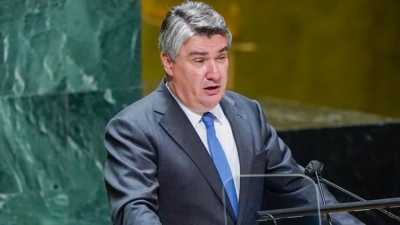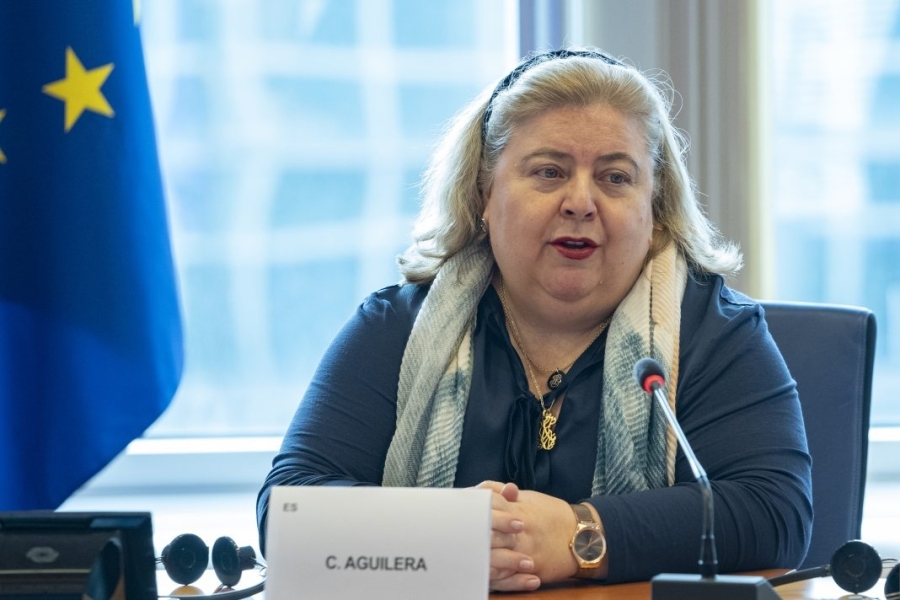Better rules on caging are and fair distribution of bluefin tuna quotas among fleet segments are part of the new plan to manage bluefin tuna in the eastern Atlantic and Mediterranean.
European Parliament negotiators have ended a two-year-long stalemate on a multiannual management plan for bluefin tuna in the eastern Atlantic and the Mediterranean after reaching a deal with Council. This was approved today by Fisheries Committee MEPs by 21 votes to 3 and 0 abstentions.
The last agreed items concern the carry-over of non-harvested live bluefin tuna and caging authorisation and cage operations-related decisions.
A farm may be permitted to carry over catches of non-harvested live bluefin tuna from previous years only if a reinforced system of control is developed and reported by the EU country to the Commission.
In case this carry-over is allowed, member states must convey an annual carry-over declaration to the Commission, each year by 25 May, detailing quantities, the year of catch, average weight, flag country and the International Commission for the Conservation of Atlantic Tuna (ICCAT) farm number.
Concerning caging operations, if the difference between the caged bluefin tuna and the quantities reported caught or transferred is more than 10%, the member state responsible for the catching vessel or trap shall launch an investigation and the member state responsible for the farm must fully cooperate. If the investigation concludes that bluefin tuna were missing, the weight of the missing fish shall be deducted from the country’s quota.
The text states that EU countries should try to distribute quotas fairly among the different fleet segments and confirms that small-scale and artisanal fisheries should be given “special consideration” in this process of distributing national quotas.
Measures already approved by plenary
In April 2021, MEPs already approved that national authorities should provide incentives to fishing vessels deploying selective fishing gear or using fishing techniques with reduced environmental impact.
Other measures agreed previously include:
- Increasing fishing capacity by up to 20 % for purse seiners; New sectorial quotas for small-scale vessels, and for bait-boats in the Azores, Madeira and the Canaries; Increasing by-catches limits from 5% to 20% of the total catches; Extending fishing season for purse seiners by seven days (to cover the 26 May-1 July period); Extending fishing season in case of adverse climate conditions; Reinforcing monitoring and control systems.
EP rapporteur Clara Aguilera (S&D, ES) stated: “Finally, the fishing sector can count on the Regulation that it so much deserves, thanks to the efforts made throughout more than 13 years, with a recovery plan that imposed very strict measures and great restrictions on fisheries.
Both institutions had to give way in their ambitions but the common good and legal security have won and we welcome this agreement, which the European fisheries sector so badly needs”, MEP Aguilera added.
The eastern bluefin tuna stock is, similarly to all tunas in the Atlantic, managed by the International Commission for the Conservation of Atlantic Tunas (ICCAT), an intergovernmental fishery organisation of which the EU has been a contracting party since 1997.
In 2006, the ICCAT adopted restrictive measures for bluefin tuna catches for 2007-2022 with the aim of avoiding a possible collapse of fishing stocks. In 2018, after verifying the recovery of stocks, the ICCAT moved from the recovery plan to a management plan, which entered into force in June 2019.
The Parliament and the Presidency of the EU Council reached a preliminary deal on how to transpose ICCAT recommendation into EU law on 10 November 2020. Parliament adopted the first reading position in April 2021. However, this agreement was rejected by the EU governments due to concerns over their exclusive powers to allocate fishing opportunities. The negotiations resumed in March 2023.
The deal still needs to be approved by the EU Council and the full house of the European Parliament.









